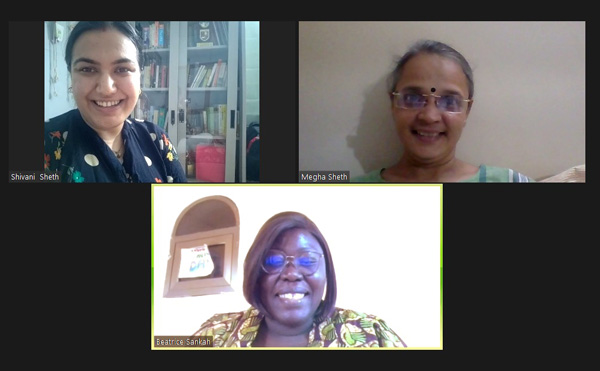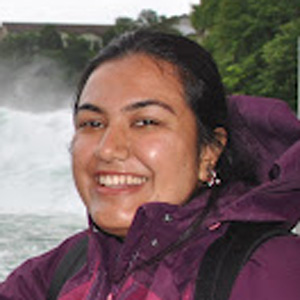Inequity in evidence-based practice awareness among physiotherapists in India and Ghana
Evidence-based practice (EBP) is the ‘integration of the best research evidence with clinical expertise and patient values in the decision-making related to patient healthcare’.1 World Physiotherapy advocates for the need for EBP within physiotherapy and, despite such calls, there are still low levels of awareness of EBP within physiotherapy practices, particularly in lower- and middle-income countries (LMICs). The foundation of EBP is based on knowledge and application of skills to real-life settings, and for training in the five-step EBP process, professionals rely on the education system. Physiotherapists understand their skills and knowledge gaps, and the areas where work is needed for improvement. At the recent World Physiotherapy Congress 2023, the inequity in EBP between developed countries and LMICs, such as India and Ghana, was clearly evident through discussions on barriers to EBP in developing countries.
Within this blog, and for World EBHC Day 2023, some barriers to EBP in India and Ghana, and the efforts both countries are making towards EBP promotion in physiotherapy, are discussed.

Evidence-based practice in India
The evidence gap
Physiotherapy curricula of some health science universities in India include EBP teaching in undergraduate and postgraduate programs. Postgraduate physiotherapy programs cover some concepts and steps in EBP, largely because of the mandatory research component. Most undergraduate programs lack relevant coverage of EBP to inform its use in clinical practice. More specifically, whilst it is laudable that undergraduate programs introduce the teaching of EBP at the entry level, research reports its fragmented and less-structured approach. Similar to other LMICs, like Ghana, clinical translation of evidence is largely missing in the Indian syllabi. Only 16.6% of universities in India include critical appraisal teaching in their EBP subjects. Awareness of the critical appraisal process can result in removal of barriers to practice and supports the development of evidence-based practice. The lack of knowledge of critical appraisal leads to limited awareness of and interest in EBP among current and future physiotherapists. Of note, 75% of students have very limited knowledge of statistical analysis and more than 80% of undergraduate students, interns and postgraduate students have reported limited research skills as a major hindrance to EBP. Only 23% of postgraduate physiotherapy students reported exposure to EBP, which either included a short lecture (one to three hours) or a course (10 to 20 hours). This reflects the lack of options offered by universities for EBP, and substantiates the need for syllabi modification to provide structured, formal courses with clinical workshops on EBP implementation.
This limited interest in and awareness of EBP among physiotherapists is due to its lack of promotion by the government and the national physiotherapy association/council. The importance of research in clinical practice is not given enough consideration, as there are no policies or governance for this area. The lack of promotion and funding and the increasing patient population are some of the major reasons given by practicing physiotherapists in India for their lack of awareness about EBP. Hence, we are of the opinion that the importance of EBP has not been emphasised enough or taught adequately to inform change in practice.
Bridging the inequity evidence gap in India
On the encouraging side, there is a group of physiotherapists from Tamil Nadu who have started a virtual journal club, where they discuss evidence for better understanding and reach. Private universities have started journals, which are indexed in reputable databases. The rise in universities offering a PhD in Physiotherapy in India shows the interest in professional growth, which is a positive step towards bridging the EBP gap between the Global South and the Global North. Such small steps are sure to make a huge impact once they are supported and encouraged by governing bodies. Opportunities to collaborate with high-income countries for the development of EBP can also be considered.
Evidence-based practice in Ghana
The evidence gap
Generally, the majority of Ghanaian physiotherapists are aware of EBP or have at least heard about it at some point during their undergraduate training or professional career. However, the understanding of the concept to facilitate its implementation in clinical practice was, and is still, missing in certain physiotherapy settings.
Regarding physiotherapy training, academics in universities offering undergraduate physiotherapy programs in Ghana were engaged to ascertain whether their curricula had content on EBP. Unlike India, where both undergraduate and postgraduate training cover some or all of the core concepts in EBP, only one university out of the three main universities offering physiotherapy undergraduate programs in Ghana teaches some aspects of EBP. This is a clear evidence gap and this contributes to the lack of awareness of EBP among Ghanaian physiotherapists.
However, national bodies, as pointed out earlier, also have a role to play in EBP advocacy and it can be added here that, even individual physiotherapists have responsibilities as well. Thus, World Physiotherapy strongly recommends EBP and encourages physiotherapists to advance their knowledge through continuous professional development activities. Therefore, similar to the calls for advocacy mentioned previously, national physiotherapy bodies and health ministries should join the EBP advocacy campaign to help bridge the knowledge gap and augment the efforts of the universities in promoting EBP.
Ghana is a fairly small country compared with India and, although physiotherapy practice started in the early 1940s, physiotherapy training did not start until 2001. Hence, physiotherapy training is still quite new (about 22 years old) and its growth, in comparison to India and other Western countries, can be described as emerging. Ghana’s physiotherapy training has not yet progressed to the postgraduate level at the time of writing and, indeed, most Ghanaian physiotherapists pursue postgraduate training outside the country. That said, one of the universities in Ghana, the University of Ghana has made giant strides in this regard and is about to commence its postgraduate physiotherapy training for the very first time (September/October 2023), with a curriculum that includes an EBP module.
Bridging the inequity evidence gap in Ghana
Regarding physiotherapy education and the teaching of EBP, universities are making efforts to review their curricula to incorporate modules on EBP (for those that do not currently teach it) or update their current modules to reflect new knowledge (for the university that currently covers some aspects of EBP). In comparison to Indian physiotherapy education, there is still huge potential for Ghana and efforts are ongoing to advance physiotherapy training nationwide.
Regarding national associations and the involvement of other entities in EBP promotion, Ghana has made giant strides comparatively to India. The Ghana Physiotherapy Association (GPA) has, over the years, promoted EBP among Ghanaian physiotherapists through workshops and seminars, despite challenges regarding its adequate translation into clinical practice. An example is the partnership development of the GPA Evidence Updates and GPA Evidence Database initiatives to promote the EBP culture among Ghanaian physiotherapists. To further promote research in EBP, the Evidence-based Practice Research Group was created and, in addition to running these initiatives, the group also runs educational webinars and workshops to promote the translation of EBP into practice.
With regards to the establishment of journals in some Indian universities to encourage research publications by Indian therapists, Ghana is yet to advance. Although the Ghana Physiotherapy Association once had a journal, this is no longer in existence. However, new conversations are currently ongoing to revamp the journal and to explore other new publication initiatives.
Conclusion
EBP is key to quality patient-centred care, and both India and Ghana value its importance in physiotherapy education and practice. The authors appreciate the need for more work to be done, however, some of the approaches highlighted in this blog are good EBP exemplars for other LMICs.
Take-home messages
To increase the awareness, interest and knowledge of EBP in physiotherapy:
- State/national councils of physiotherapists should support the provision of continuing educational programs (e.g. conferences), research funding and salary appraisal of clinical therapists and academicians based on their EBP skills.
- Collaborations in research and education projects within the Global South should be encouraged and funded to build capacity in bridging inequity in evidence use in LMICs.
- Online journal clubs to support EBP knowledge translation in local languages (as in India) can be initiated in other LMICs.
- EBP-focused research groups, similar to the approach taken by Ghana, are also a good example of initiatives to promote the conduct of EBP.
- Similar to networks such as EVIPnet, a physiotherapy EBP network is encouraged to promote the awareness and routine integration of EBP in physiotherapy within LMICs. By this, the authors have initiated the formation of this network and look forward to the involvement of other LMICs regions.
Reference
1. Sackett DL, Rosenberg WMC, Muir Gray JA, Haynes RB, Richardson WS. Evidence-based medicine: what it is and what it isn’t. BMJ. 1996;312:71–2.
Authors
Shivani Sheth1; Beatrice E.A. Sankah2,3; Megha Sheth4
1. Khyati Institute of Physiotherapy, Gujarat University, Ahmedabad, India
2. University of Southampton, Southampton, UK
3. Evidence-based Practice Research Group, GPA, Ghana
4. SBB College of Physiotherapy, AMCMET, Gujarat University, Ahmedabad, India
Disclaimer
The views expressed in this World EBHC Day Blog, as well as any errors or omissions, are the sole responsibility of the author and do not represent the views of the World EBHC Day Steering Committee, Official Partners or Sponsors; nor does it imply endorsement by the aforementioned parties.
